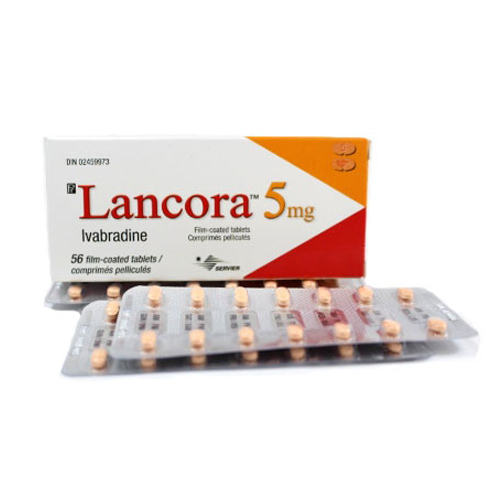What is Corlanor used for?
Corlanor is used to treat heart failure and reduce the risk of hospitalization or worsening heart failure. Heart failure occurs when it cannot pump blood effectively throughout the body. Colanor can prevent heart failure from becoming worse. It works by managing the electrical activity in the body that controls heart rate. You may need to be tested to make sure that your sinus rhythm with resting heart rate must be at least 70 beats per minute or or have a contraindication to beta-blocker use.

Corlanor Information
How to Use Corlanor?
Before you take your first dose of Corlanor, and after every refill, carefully read the drug information that is provided. If you have any questions, contact your doctor or pharmacist as proper use will provide the most benefit.
Your dose may vary based on your condition and response to treatment. Do not take more doses than prescribed as this will not accelerate treatment and can lead to side effects. Avoid grapefruit juice and grapefruit adjacent products as they can increase your risk of side effects.
Corlanor works best when it is taken consistently every day. If you miss a dose, you can take it when you remember.
Corlanor Drug Interactions
The following drugs are known to interact with Corlanor. This is not an exhaustive list of all possible drug interactions. It is important to disclose all your current medications, (including prescription medications and herbal products) with your doctor to prevent allergic reactions or adverse interactions. They may have to determine if the interaction is worth the benefit of using both drugs or if your therapeutic plan needs to be changed.
- Erythromycin
- Chloroquine
- Flecainide
- Sulpiride
- Haloperidol
- Entrectinib
- Mitotane
- Diltiazem
- Panobinostat
- Procainamide
- Droperidol
- Larotrectinib
- Buprenorphine
- Bedaquiline
- Dasatinib
- Mizolastine
- Crizotinib
- Fosnetupitant
- Quinine
- Fosphenytoin
- Vandetanib
- Apomorphine
- St John's Wort
- Eribulin
- Sodium Phosphate, Monobasic
- Rifampin
- Perphenazine
- Ceritinib
- Pazopanib
- Vilanterol
- Amiodarone
- Siponimod
- Enzalutamide
- Paliperidone
- Imatinib
- Clofazimine
- Nilotinib
- Atazanavir
- Oxaliplatin
- Verapamil
- Pimavanserin
- Desipramine
- Sunitinib
- Tamoxifen
- Gemifloxacin
- Foscarnet
- Prochlorperazine
- Osilodrostat
- Efavirenz
- Aripiprazole
What are Side Effects of Corlanor?
Corlanor Has known side effects. This is not a complete list and includes frequently reported adverse events. If you experience any signs and symptoms of serious side effects when taking Corlanor, talk to your doctor or emergency care.
Report side effects with Corlanor to your doctor. If you find them unmanageable call your doctor for medical advice about side effects.
- Double vision
- pounding in the ears
- seeing double
- flushing or redness of the skin
- sweating
- large, hive-like swelling on the face, eyelids, lips, tongue, throat, hands, legs, feet, or genitals
- hives or welts, itching, or skin rash
- Seeing flashes of light
- sensation of spinning
- slow or irregular heartbeat
- fast or irregular heartbeat
- chest pain or discomfort
- Confusion
- feeling of constant movement of self or surroundings
- lightheadedness, dizziness, or fainting
- trouble seeing
- dizziness, faintness, or lightheadedness when getting up suddenly from a lying or sitting position
- headache
- Blurred vision
- unusual tiredness
- nervousness
- unusually warm skin
Do you have any Corlanor Coupon to avail discount?
Current discounts and promotions for Corlanor can be found here
